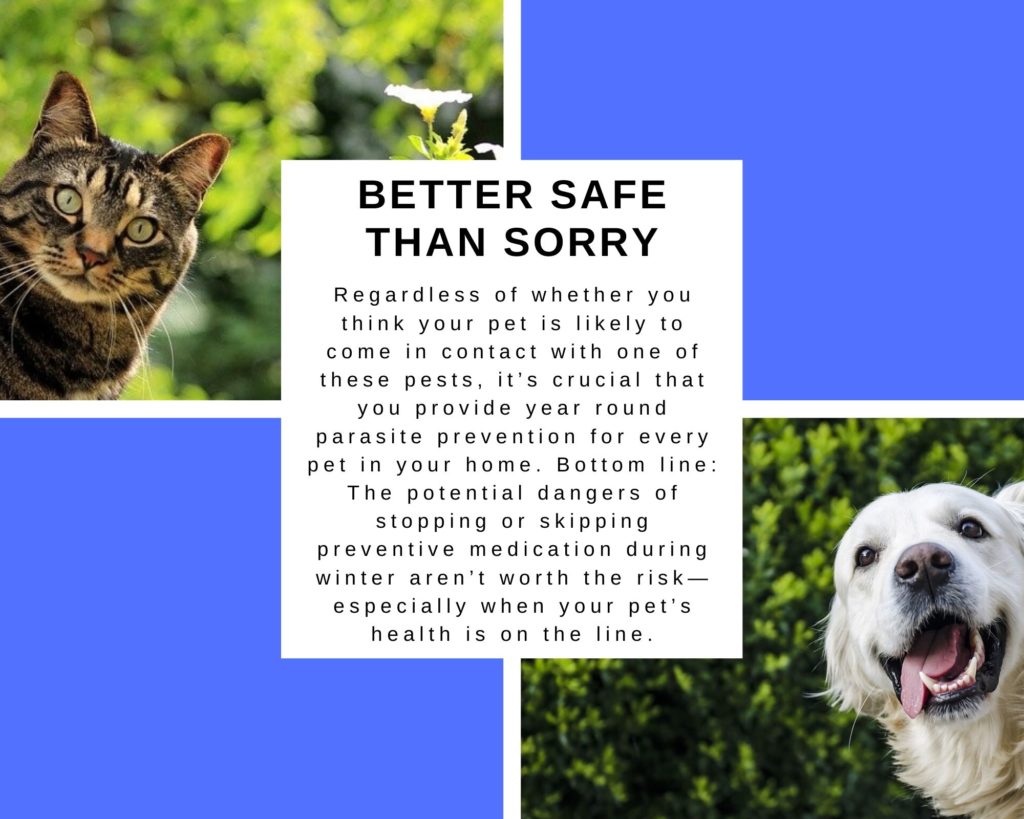
Protecting dogs and cats from parasites requires a year-round commitment. Although fleas, ticks, mosquitoes, and other pests are known to thrive in warmer climates, they don’t disappear when the temperature drops! Skipping preventive treatments just because it’s wintertime can have long-term negative consequences for your pet.
Fleas! The seasonal annoyance.
Fleas are the most common type of external parasite found on cats and dogs — and they are more than just a seasonal annoyance. In fact, when it gets even colder outside, the perfect environment for fleas still exists—your home!
Indications of a flea infestation in your pet can include itching, scratching, “flea dirt” (round, black flecks that are actually flea feces), and red bumps or hair loss on the groin or belly, under the legs, or at the base of the tail. Left untreated, fleas could lead to a range of potentially serious health risks for your pet, including tapeworm, anemia, allergies, and various infections.
Heartworms vs Seasons
The risk of taking a seasonal break from preventing heartworm lies in the unpredictability of weather patterns, fluctuating temperatures and the ever-increasing travel of pets from around the world. Above-average temperatures and rainfall throughout the country this year have created ideal breeding conditions for mosquitoes, the source of this serious, potentially fatal infection.
An abrupt end to winter and an early spring could result in mosquitoes emerging early; similarly, a warm, wet autumn can keep mosquitoes active later in the season than anticipated. It is estimated that nearly 300,000 dogs become infected with heartworm each year, and cases are reported in all 50 states (including Oregon!). It takes just 1 mosquito bite to infect an animal with heartworm disease, so continuous protection is the best defense.
Did you know that ticks can survive in winter?
Rather than dying off in the winter, ticks seek shelter among fallen leaves in the wooded areas they normally inhabit. At the first sign of milder weather, ticks may emerge in search of a meal—and your pet could become an unwitting host.
Some disease-carrying species of ticks stay active year round, as long as the climate remains above freezing – this includes the Willamette Valley. In addition to Lyme disease, a variety of other tick-transmitted diseases and infections could harm your pet. Year-round prevention in our mild climate is, by far, the best medicine.

What's Next
Call us to schedule an appointment
Meet with a doctor for an initial exam.
Put a plan together for your pet.

